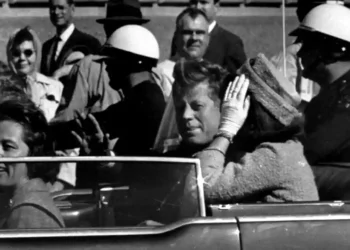Fred Harris, Former U.S. Senator and Presidential Candidate, Dies at 94
Fred Harris, a former U.S. senator from Oklahoma and a progressive voice in American politics, passed away on Saturday at the age of 94. Known for his commitment to Democratic Party reforms and championing civil rights, Harris left a lasting legacy on the political landscape.
A Life Dedicated to Public Service
Fred Harris served as a U.S. senator for eight years, first elected in 1964 to fill a Senate vacancy. During his tenure, he became a leading voice for civil rights and anti-poverty programs, advocating for the rights of minorities and the economically disadvantaged. As chairman of the Democratic National Committee from 1969 to 1970, he led efforts to diversify party leadership and ensure greater representation of women and minorities in the Democratic Party.
In a 2004 interview, Harris reflected on these reforms:
“The Democratic Party was not democratic. These changes made the process much more legitimate and inclusive.”
Presidential Aspirations and a Shift to Academia
Harris ran for the Democratic presidential nomination in 1976 but ended his campaign after a poor showing in early primaries. The nomination eventually went to Jimmy Carter, who became president. After leaving politics, Harris moved to New Mexico in 1976, where he became a political science professor at the University of New Mexico. Over his academic career, he authored and edited more than a dozen books, including a mystery novel set in Depression-era Oklahoma.
Advocacy and Legacy
Throughout his career, Harris maintained a populist stance, emphasizing the need to combat concentrated power and money in politics. He was also deeply involved in Native American issues alongside his first wife, LaDonna Vita Crawford, a member of the Comanche Nation.
In addition to his Senate work, Harris served on the National Advisory Commission on Civil Disorders, commonly known as the Kerner Commission. The commission’s 1968 report famously warned of a growing racial divide in the United States, stating,
“Our nation is moving toward two societies, one Black, one white — separate and unequal.”
Decades later, Harris co-authored a follow-up report, highlighting that disparities in wealth and opportunity had only worsened.
Early Life and Rise to Politics
Born on November 13, 1930, in a two-room farmhouse near Walters, Oklahoma, Harris grew up in humble circumstances. He worked on his family’s farm from a young age and supported his education by working as a janitor and printer’s assistant. Harris earned a bachelor’s degree in political science and history in 1952 and a law degree in 1954, both from the University of Oklahoma.
His political career began in 1956 when he was elected to the Oklahoma State Senate, where he served for eight years. In 1964, he won a tightly contested race to replace the late Senator Robert S. Kerr, defeating Oklahoma football legend Charles “Bud” Wilkinson in the general election.
Remembering Fred Harris
New Mexico Governor Michelle Lujan Grisham praised Harris as a model of integrity and leadership, saying:
“Sen. Harris was a decent, honorable man who treated everyone with warmth and generosity. His legacy is one of service and fairness.”
Harris is survived by his wife, Margaret Elliston, whom he married in 1983, and his three children from his first marriage to LaDonna Harris: Kathryn, Byron, and Laura.
Fred Harris’ life and work serve as a reminder of the importance of equity, inclusivity, and integrity in public service. His memory remains a blessing to those who knew him and those inspired by his commitment to progressive values.
This article was rewritten by JournosNews.com based on verified reporting from trusted sources. The content has been independently reviewed, fact-checked, and edited for accuracy, neutrality, tone, and global readability in accordance with Google News and AdSense standards.
All opinions, quotes, or statements from contributors, experts, or sourced organizations do not necessarily reflect the views of JournosNews.com. JournosNews.com maintains full editorial independence from any external funders, sponsors, or organizations.
Stay informed with JournosNews.com — your trusted source for verified global reporting and in-depth analysis. Follow us on Google News, BlueSky, and X for real-time updates.














